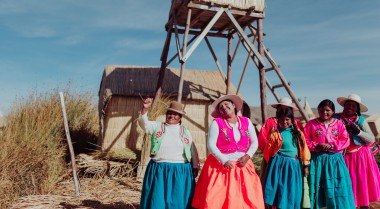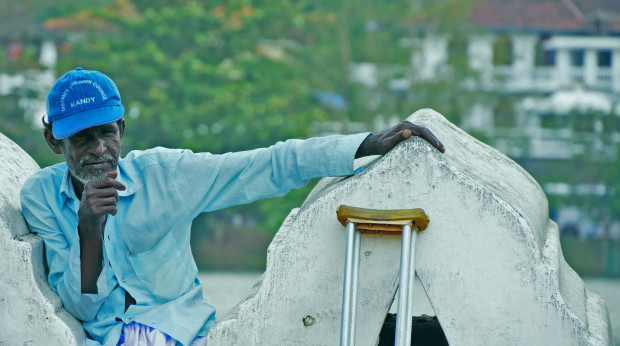
When, If Not Now? Funding Local Women Peacebuilders
During my undergraduate studies, I was a member of a local student-based feminist organisation. I still recall vividly how challenging it was to implement projects without the necessary funding. I can hardly imagine how hard the work of women peacebuilders must be who struggle with insufficient funding on a daily basis. Because let’s face it: only with sufficient funding women peacebuilders can keep fighting for women’s rights, including their participation in peace processes. It fills me with hope to see that GPPAC, together with other like-minded organisations, is advancing Feminist Solutions for Impactful Financing for Peacebuilding.
Did Someone Present Solutions for more Impactful Financing for Women Peacebuilders? Oh Yes!
Like so many others, I not only imagine but demand a more peaceful world. For this to happen, women peacebuilders need access to all the funding they need. They would not have to worry about receiving funds to keep their work going for the following year because donors would use flexible funding instruments and prioritise long-term support and core funding. This way, local organisations could better react to changing circumstances and needs on the ground. In addition, having long-term funds takes the pressure away to achieve short-term results for specific programmes. Local organisations, instead, would finally be able to use the funding to strengthen their operational capacities, leading to even better positive changes and more agency.
I also envision a world where enough emergency funds are available, making it possible for local women peacebuilders to continue their impactful work even during crises. Our gender expert Justine Kwachu Ngum Kumche from Women in Alternative Action in Cameroon shared during an event on Feminist Financing for Peacebuilding in November how the GPPAC emergency fund helped her organisation react swiftly to a violent outbreak after the election in 2018 in Cameroon. The funding enabled them to effectively reduce and prevent electoral violence. This is just one example that showed me what is possible when women peacebuilders receive flexible, swift and adequate funding, especially in times of crisis. I am convinced that if we, meaning civil society, the international donor community and local peacebuilding organisations, finally scale-up and dare to transform funding opportunities to empower local organisations, real change for women, peace and humanity is possible. This transformation needs to happen in consultation with local women peacebuilders to be truly impactful.
“Addressing funding challenges is possible if donors engage in mutually beneficial partnerships with local women peacebuilders. We must be consulted to ensure that local priorities and needs are reflected in funding opportunities.” - Justine Kwachu Ngum Kumche
Let’s Take a Look at the Main Funding Barriers Local Women Peacebuilders Are Facing
The reality, unfortunately, looks very different. Justine Kwachu Ngum Kumche knows too well about all the challenges local women organisations face when applying for funding. After all, she co-founded a small, women-led peacebuilding organisation.
According to Justine, there are three main challenges that local women peacebuilding organisations face.
- Dominating technical language: The technical language of planning or reporting guidelines creates challenges for small local organisations to meet the requirements.
- Existing complex procedures: Dealing with complex procedures of accessing and managing funding burdens small organisations, especially during conflicts or crises, because of their time-consuming character. Ultimately, women peacebuilders do not have time enough to focus on what they are supposed to do - build peace.
-
Prevailing eligibility criteria: Eligibility criteria to apply for certain funds are too high for many newly founded or small organisations as they struggle to show a strong track record of their work.
On top of these three main challenges, there is another deep-rooted and highly unjust problem for women’s rights or women-led organisations. As women are generally underrepresented in high-level positions in society, local women peacebuilders are also often excluded from consultations on decision-making about financing priorities. This comes with the negative consequences of losing the unique understanding of conflict that women peacebuilders possess through their daily work within local communities. Consequently, financing priorities for peacebuilding are often less effective.
No Excuse not to Fund the Work of Women Peacebuilders
To overcome these existing challenges, the international community needs to truly recognise the value and importance of women’s work in peacebuilding in the form of adequate, predictable and sustained financial support. All of us have to play a part in this undertaking. Especially member states must translate words into concrete commitments and actions on funding local women peacebuilders. Events like The Feminist Solutions for Impactful Financing for Peacebuilding give me great hope. To see so many passionate believers in women’s rights and peacebuilding come together to not dwell on the existing challenges but actively look for solutions makes me believe that we are on the right path.
Curious to learn more? Watch the full recording of the event here.



